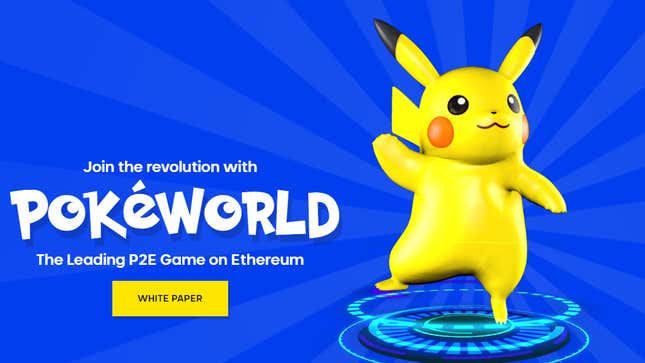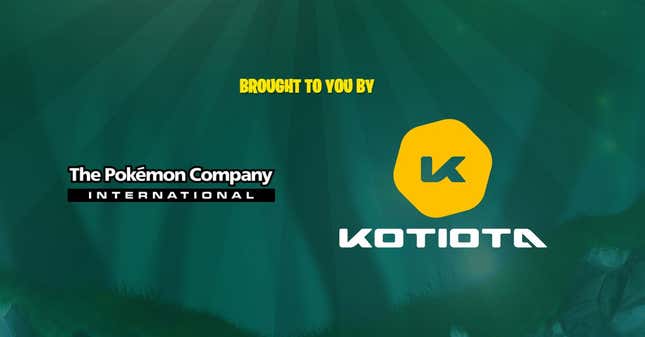
The Pokémon Company International (TPCi) works pretty hard to keep its monsters in their proper pens, fervently stamping out any attempts to use pocket beasties without a licensing agreement in place. Just a few months ago, we saw the company going after six Chinese firms that had crossed the line with their own Pokémon-like, and now they’re back in the courts with a new target. Except this time it’s NFTs, the digital JPGs crypto bros pretend that they own.
Australian site Vooks noticed papers filed with the Federal Court of Australia, showing The Pokémon Company taking action against a company called, incredibly, Pokémon Pty Ltd, who claimed to be making a mobile game called PokéWorld. Because when it comes to crypto, there’s no bottom to the barrel o’ stupid.
Pokémon Pty Ltd, seemingly based in Melbourne, was registered as a business in 2016, and appears to be operating under the name Kotiota Studios. All these entities, according to the court papers, boil down to one individual, Xiaoyan Liu. Kotiota, which doesn’t appear to exist at the address given, then created a website for PokéWorld, a paltry mobile game in which you battle Pokémon like Charmander and Pikachu, to win “$POKESHARD” currency, linked to Etherium. All the in-game items you buy are, of course, minted as NFTs, so everyone can trade them down to their core value of zero.
Vooks reports that the company then brazenly sent out press releases to gaming sites, while they’ve made ridiculous claims about working alongside TPCi to produce their NFT rubbish. On NFTCalendar, the claim is made that “the first Pokémon P2E NFT collection brought to you by The Pokemon Company International and Kotiota: bringing the spirit of your 2000s nostalgia to WEB3.” On the game’s site, this amazing lie appears:

While the Twitter account has been suspended, the game’s website is still online, which is bold of them considering the court action. It’s replete with Pokémon characters, even including narrated animated videos, showing the unpleasantly shiny 3D monsters lamely shooting attacks at one another against a 2D backdrop.
However, the whole project is breathtaking to investigate. Given the repeated claims that TPCi are involved, it’s not even trying to disguise the complete lifting of a world-famous IP, just plastering the site in the franchise’s most famous characters. What was the plan; how did they see themselves getting away with this? It reminds me of the group that thought they could create original Dune works and NFTs because they’d bought a copy of a book, but somehow even more stupid.
Either way, the group has now been ordered by a court to immediately stop suggesting it has any rights to develop Pokémon games, stop using Pokémon properties, and especially to no longer claim that its Pokémon NFTs are anything to do with TPCi.
The court papers say that The Pokémon Company became aware of this project in November this year, hired a cybercrime investigation team to look into it, and then tried to serve papers to Xiaoyan Liu or the companies involved, but were unable to. The ruling was made without any response from Kotiota, Liu, or Pokémon Pty Ltd. The court has asked for more details before it’s willing to rule on damages, but has made it abundantly clear who’s in the right here.
It’s worth noting that, bemusingly, this isn’t the only “PokéWorld” in existence. There’s a whole other NFT grift using the same name, although its website is dead and the Twitter account hasn’t updated since last November. And then, somewhat more legally, there’s a very popular Rimworld mod called PokéWorld, only making picking this all apart more confusing.
We’ve reached out to Pokémon Pty Ltd and Kotiota, and really hope anyone involved responds, because it would be fascinating to learn where else they could have thought this was heading.